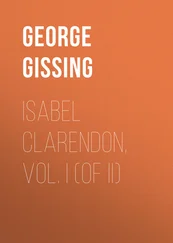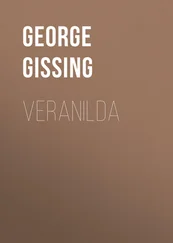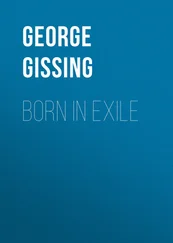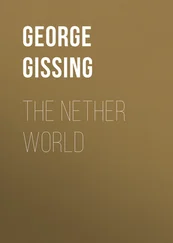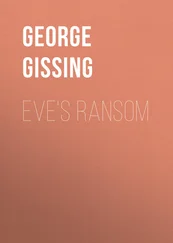George Gissing - New Grub Street
Здесь есть возможность читать онлайн «George Gissing - New Grub Street» — ознакомительный отрывок электронной книги совершенно бесплатно, а после прочтения отрывка купить полную версию. В некоторых случаях можно слушать аудио, скачать через торрент в формате fb2 и присутствует краткое содержание. Жанр: unrecognised, на английском языке. Описание произведения, (предисловие) а так же отзывы посетителей доступны на портале библиотеки ЛибКат.
- Название:New Grub Street
- Автор:
- Жанр:
- Год:неизвестен
- ISBN:нет данных
- Рейтинг книги:3 / 5. Голосов: 1
-
Избранное:Добавить в избранное
- Отзывы:
-
Ваша оценка:
- 60
- 1
- 2
- 3
- 4
- 5
New Grub Street: краткое содержание, описание и аннотация
Предлагаем к чтению аннотацию, описание, краткое содержание или предисловие (зависит от того, что написал сам автор книги «New Grub Street»). Если вы не нашли необходимую информацию о книге — напишите в комментариях, мы постараемся отыскать её.
New Grub Street — читать онлайн ознакомительный отрывок
Ниже представлен текст книги, разбитый по страницам. Система сохранения места последней прочитанной страницы, позволяет с удобством читать онлайн бесплатно книгу «New Grub Street», без необходимости каждый раз заново искать на чём Вы остановились. Поставьте закладку, и сможете в любой момент перейти на страницу, на которой закончили чтение.
Интервал:
Закладка:
‘Hungry, too,’ she said, seeing the crust Marian was nibbling. ‘You really must have more lunch, dear. It isn’t right to go so long; you’ll make yourself ill.’
‘Have you been out?’ Marian asked.
‘Yes; I went to Holloway.’
Mrs Yule sighed and looked very unhappy. By ‘going to Holloway’ was always meant a visit to her own relatives—a married sister with three children, and a brother who inhabited the same house. To her husband she scarcely ever ventured to speak of these persons; Yule had no intercourse with them. But Marian was always willing to listen sympathetically, and her mother often exhibited a touching gratitude for this condescension—as she deemed it.
‘Are things no better?’ the girl inquired.
‘Worse, as far as I can see. John has begun his drinking again, and him and Tom quarrel every night; there’s no peace in the ‘ouse.’
If ever Mrs Yule lapsed into gross errors of pronunciation or phrase, it was when she spoke of her kinsfolk. The subject seemed to throw her back into a former condition.
‘He ought to go and live by himself’ said Marian, referring to her mother’s brother, the thirsty John.
‘So he ought, to be sure. I’m always telling them so. But there! you don’t seem to be able to persuade them, they’re that silly and obstinate. And Susan, she only gets angry with me, and tells me not to talk in a stuck-up way. I’m sure I never say a word that could offend her; I’m too careful for that. And there’s Annie; no doing anything with her! She’s about the streets at all hours, and what’ll be the end of it no one can say. They’re getting that ragged, all of them. It isn’t Susan’s fault; indeed it isn’t. She does all that woman can. But Tom hasn’t brought home ten shillings the last month, and it seems to me as if he was getting careless. I gave her half-a-crown; it was all I could do. And the worst of it is, they think I could do so much more if I liked. They’re always hinting that we are rich people, and it’s no good my trying to persuade them. They think I’m telling falsehoods, and it’s very hard to be looked at in that way; it is, indeed, Marian.’
‘You can’t help it, mother. I suppose their suffering makes them unkind and unjust.’
‘That’s just what it does, my dear; you never said anything truer. Poverty will make the best people bad, if it gets hard enough. Why there’s so much of it in the world, I’m sure I can’t see.’
‘I suppose father will be back soon?’
‘He said dinner-time.’
‘Mr Quarmby has been telling me something which is wonderfully good news if it’s really true; but I can’t help feeling doubtful.
He says that father may perhaps be made editor of The Study at the end of this year.’
Mrs Yule, of course, understood, in outline, these affairs of the literary world; she thought of them only from the pecuniary point of view, but that made no essential distinction between her and the mass of literary people.
‘My word!’ she exclaimed. ‘What a thing that would be for us!’
Marian had begun to explain her reluctance to base any hopes on Mr Quarmby’s prediction, when the sound of a postman’s knock at the house-door caused her mother to disappear for a moment.
‘It’s for you,’ said Mrs Yule, returning. ‘From the country.’
Marian took the letter and examined its address with interest.
‘It must be one of the Miss Milvains. Yes; Dora Milvain.’
After Jasper’s departure from Finden his sisters had seen Marian several times, and the mutual liking between her and them had been confirmed by opportunity of conversation. The promise of correspondence had hitherto waited for fulfilment. It seemed natural to Marian that the younger of the two girls should write; Maud was attractive and agreeable, and probably clever, but Dora had more spontaneity in friendship.
‘It will amuse you to hear,’ wrote Dora, ‘that the literary project our brother mentioned in a letter whilst you were still here is really to come to something. He has sent us a specimen chapter, written by himself of the “Child’s History of Parliament,” and Maud thinks she could carry it on in that style, if there’s no hurry. She and I have both set to work on English histories, and we shall be authorities before long. Jolly and Monk offer thirty pounds for the little book, if it suits them when finished, with certain possible profits in the future. Trust Jasper for making a bargain! So perhaps our literary career will be something more than a joke, after all. I hope it may; anything rather than a life of teaching. We shall be so glad to hear from you, if you still care to trouble about country girls.’
And so on. Marian read with a pleased smile, then acquainted her mother with the contents.
‘I am very glad,’ said Mrs Yule; ‘it’s so seldom you get a letter.’
‘Yes.’
Marian seemed desirous of saying something more, and her mother had a thoughtful look, suggestive of sympathetic curiosity.
‘Is their brother likely to call here?’ Mrs Yule asked, with misgiving.
‘No one has invited him to,’ was the girl’s quiet reply.
‘He wouldn’t come without that?’
‘It’s not likely that he even knows the address.’
‘Your father won’t be seeing him, I suppose?’
‘By chance, perhaps. I don’t know.’
It was very rare indeed for these two to touch upon any subject save those of everyday interest. In spite of the affection between them, their exchange of confidence did not go very far; Mrs Yule, who had never exercised maternal authority since Marian’s earliest childhood, claimed no maternal privileges, and Marian’s natural reserve had been strengthened by her mother’s respectful aloofness. The English fault of domestic reticence could scarcely go further than it did in their case; its exaggeration is, of course, one of the characteristics of those unhappy families severed by differences of education between the old and young.
‘I think,’ said Marian, in a forced tone, ‘that father hasn’t much liking for Mr Milvain.’
She wished to know if her mother had heard any private remarks on this subject, but she could not bring herself to ask directly.
‘I’m sure I don’t know,’ replied Mrs Yule, smoothing her dress. ‘He hasn’t said anything to me, Marian.’
An awkward silence. The mother had fixed her eyes on the mantelpiece, and was thinking hard.
‘Otherwise,’ said Marian, ‘he would have said something, I should think, about meeting in London.’
‘But is there anything in—this gentleman that he wouldn’t like?’
‘I don’t know of anything.’
Impossible to pursue the dialogue; Marian moved uneasily, then rose, said something about putting the letter away, and left the room.
Shortly after, Alfred Yule entered the house. It was no uncommon thing for him to come home in a mood of silent moroseness, and this evening the first glimpse of his face was sufficient warning. He entered the dining-room and stood on the hearthrug reading an evening paper. His wife made a pretence of straightening things upon the table.
‘Well?’ he exclaimed irritably. ‘It’s after five; why isn’t dinner served?’
‘It’s just coming, Alfred.’
Even the average man of a certain age is an alarming creature when dinner delays itself; the literary man in such a moment goes beyond all parallel. If there be added the fact that he has just returned from a very unsatisfactory interview with a publisher, wife and daughter may indeed regard the situation as appalling. Marian came in, and at once observed her mother’s frightened face.
‘Father,’ she said, hoping to make a diversion, ‘Mr Hinks has sent you his new book, and wishes—’
Читать дальшеИнтервал:
Закладка:
Похожие книги на «New Grub Street»
Представляем Вашему вниманию похожие книги на «New Grub Street» списком для выбора. Мы отобрали схожую по названию и смыслу литературу в надежде предоставить читателям больше вариантов отыскать новые, интересные, ещё непрочитанные произведения.
Обсуждение, отзывы о книге «New Grub Street» и просто собственные мнения читателей. Оставьте ваши комментарии, напишите, что Вы думаете о произведении, его смысле или главных героях. Укажите что конкретно понравилось, а что нет, и почему Вы так считаете.



